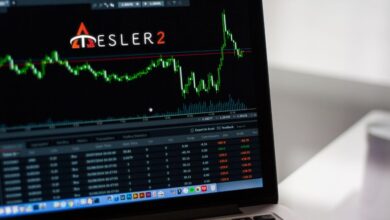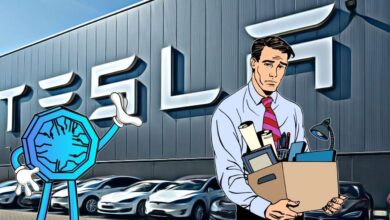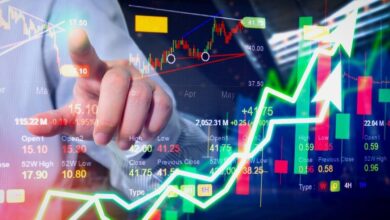What Are Futures in Finance?

As the world economy is expanding, so are investment options. For many years, investors have been investing their money in products like bonds, stocks, mutual funds, and exchange-traded funds. Though these are prime choices of investors, there are alternative investment instruments that investors can take advantage of for building their investment portfolios.
Futures is one of those alternatives and it is critical for the overall economy. Despite the fact that many investors are not well aware of it or do not show any interest in investing in it, futures are no less important. But before investing in them, it is better to understand what futures is, how it works and why you should invest in it.
What Are Futures?
Futures, sometimes referred to as futures contracts, is a legal agreement between two parties where the seller agrees to sell an asset to the buyer at a predetermined market price and future date. The underlying asset can be a physical commodity or currency or bond or stock. And because it involves the transaction of an underlying asset, it is also known as a derivative.
The agreed upon price for an underlying asset does not change, no matter what the market price is on the future date agreed upon.
Types of Futures
The Futures contract is a standardized agreement to buy or sell an underlying asset or commodity locked with a specific price and a predetermined expiration date. There are different types of futures contracts to choose from:
- Commodities such as agricultural products (corn, wheat, etc.), crude oil and natural gas, and coal
- Currencies
- Interest rates
- Stock index futures such as the S&P 500 Index
- Precious metals such as gold and silver
Futures trading can be done through a traditional broker or an online broker, who charges a fee for the trade. Traders involved in trading of futures contracts are of two types: Hedgers and Speculators.
- Hedgers
Hedgers are typically enterprises or those individuals that trade futures contracts to prevent losses from volatile price movements in the underlying asset. Basically, they seek protection rather than gaining profit from the contract.
- Speculators
Speculators, on the other hand, are independent traders or investors that trade futures contracts trade against market trends to make a profit. They trade either using their own money or on behalf of their clients or brokerage firms.
How to Make Money Trading Futures?
Futures contracts are a great choice for investors, who wish to have a diversified investment portfolio and avoid any risk in losses. With a few strategies, one can make money trading futures.
- Follow the Trends
The futures price keeps on changing everyday depending on the supply and demand of commodities such as grains, energy and precious metals. By researching supply and demand trends, you increase your likelihood of making a profit.
- Avoid Losses
Anytime you observe a decline in the futures contract value, it is advisable to sell it and burden a small loss instead of waiting for its value to rise again.
- Trade on Margins
Many investors prefer trading futures on margin where they need to pay a fraction of the contract price. With this minimum deposit, they are still able to own and control the right to sell the contract until it expires.
- Consider Expiration Date
Though you can sell the futures contract before it expires, consider selecting a contract that expires after the time you expect the commodity value to reach its peak.
- Choose an Online Broker
One of the best ways for you to keep trading costs low and gain profit from trading futures is to take services of an online broker.
- Track Your Expenses
Be careful about where you are putting your money by keeping track of all expenses, including broker fees.
Pros & Cons of Trading Futures
Like any financial market, the futures contract has its own pros and cons:
Pros
- Investors can hedge against unfavorable price fluctuations in the futures markets
- Investors can start by paying a fraction of the contract price
- Investors can enter and exit the market whenever they want to
- Investors can avoid any possible foreign currency risks
- It is a useful investment strategy for risk-tolerant investors
Cons
- Investors can end up incurring losses from leveraging margin
- Investors can miss the chance of making a profit from favorable price movements due to hedging
- Investors might find contract prices less attractive as the expiration date approaches
- Investors cannot control factors impacting supply and demand of commodities
- Trading futures can be risky
Futures in Finance
Futures are commonly traded in commodity markets such as agriculture, oil and gas, and mining that want to protect themselves against the risk of price fluctuations for their commodities in the future. Apart from commodities, stock market indexes or bonds or foreign currencies can be traded in futures.
Exchanges where futures are traded are called futures exchanges. In case the trader fails to trade the contract on the future date, these exchanges determine if the contract will be settled in cash or physical delivery.
Conclusion
While anticipating gross price fluctuations in the market, traders look for ways to gain profit against volatile price movements with a futures contract. Being an alternative investment, futures contracts also allow investors to diversify their investment portfolios. Though it comes with advantages like low trading costs, it is the higher market volatility that makes it risky, which means that investors can end up either with profit or loss due to adverse price movements.
Therefore, it would be wise for you to explore all of your options before investing in them. By developing skills, risk-taking abilities, and gaining knowledge in trading, you will be able to easily trade and make profits in the futures market.
FAQs
1. What Is the Difference Between Futures and Options?
Ans. The biggest difference between futures and options is that the former is an obligation to buy or sell an underlying asset at a fixed price on a specific future date, while the latter allows you to buy or sell the stock at a specific price, but with no obligation. Furthermore, the futures can be sold before it expires, while options can expire if there is no business.
2. How Does the Futures Market Work?
Ans. The futures market functions on high leverage, which means that the trader can invest an initial margin amount of the total futures contract price instead of the total amount of the futures contract price.
3. What Do Stock Market Futures Mean?
Ans. Stock market futures are futures contracts that allow traders to trade the direction of the underlying equities and track stock market indexes like the S&P 500.
4. What Is Futures and Options with Examples?
Ans. In options, an investor can buy or sell the underlying asset at a pre-decided price on or before the expiration date of the options contract. In futures, investors are obliged to sell or buy an underlying asset at a specified price on a future date. Common examples of futures are crude oil contracts and corn contracts, and examples of options include currencies, stocks, bonds, and indexes.



